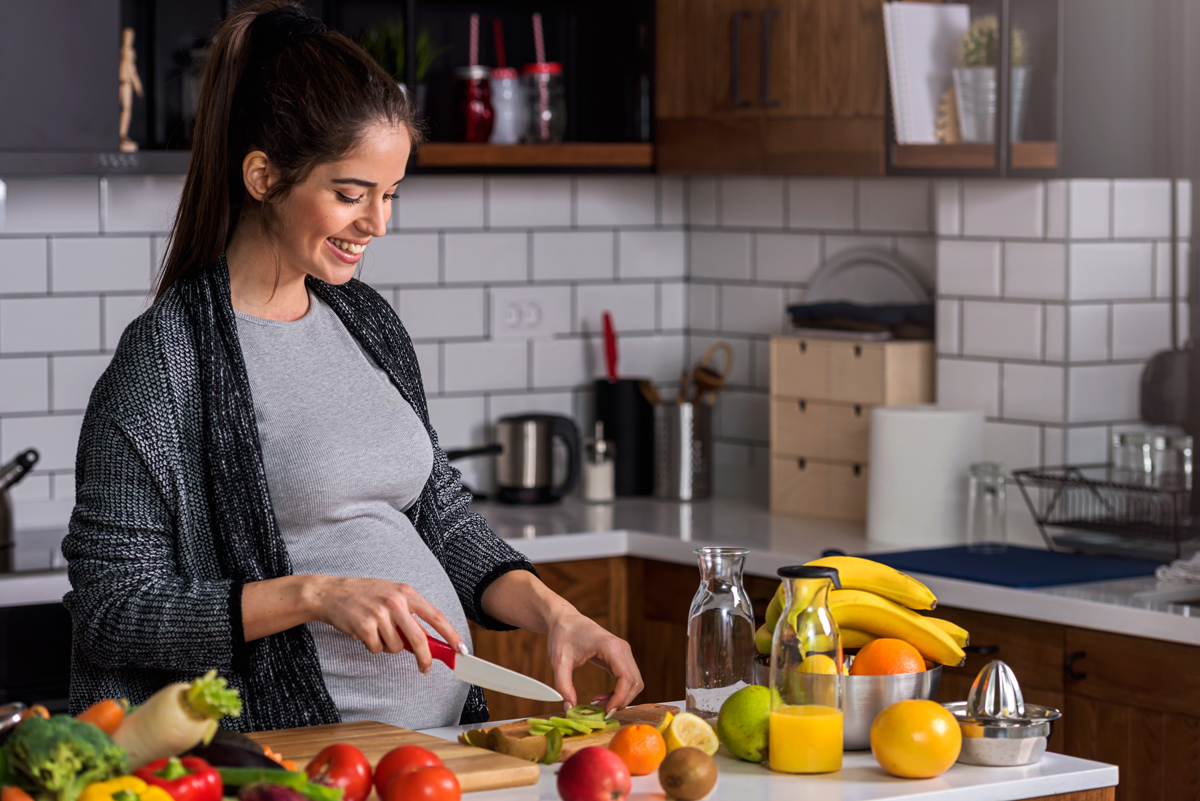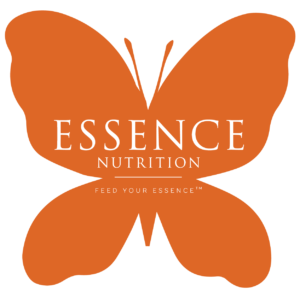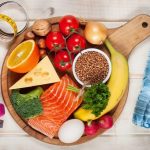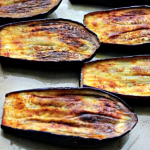Your body and baby are especially susceptible to infections during pregnancy. It is essential that you practice safe food handling, storage, choice, and intake to avoid becoming ill.
- Avoid contact with cat litter, which can carry a dangerous bacteria and cause toxoplasmosis
- Cook all food thoroughly. Your meat should be cooked to a well-done consistency. Poultry and fish should have juices that run clear.
Once you have purchased poultry, meat, or fish, make sure that you refrigerate it as soon as you arrive home. If they are not frozen, these items should be cooked within 48 hours.
- While cooking, make sure to avoid the contamination of listeriosis. Foods should be cooked well-done. Indicators of well-done food include a pearly and opaque color for shrimps and scallops, clams open once they are fully cooked, poultry and meat should have no pink showing.
- Eggs should be cooked until the yolk appears hard and if they are scrambled, they should not be runny. They should not be stored on the refrigerator door, since the objective is to keep them at and internal refrigerator temperatures are colder
- Pasteurized liquid eggs are a great alternative to raw eggs.
- Store hot foods/leftovers immediately in the refrigerator; do not let foods “cool down” on the counter first
- Leftovers should be consumed three to four days after placing them in the refrigerator. If you know you will not eat it, it is recommended to store the food in the freezer immediately.
- Before taking a shower, washing hands, or washing fruit, make sure to leave the tap water running for one minute before exposing yourself or food to it.
- Once you are done shopping, make sure to store the food immediately in the refrigerator if applicable. Do not eat any food that has been out for more than 2 hours, or 1 hour in hot weather.
Foods to Avoid:
- Many foods are off limits during pregnancy to protect the health of you and your baby.
- Follow these rules:
- no sushi, no high-mercury fish, no alcohol, no artificial sweeteners, no soft cheeses, no lunch meats/deli meats, no unpasteurized juices, no raw milk, undercooked meat, smoked fish, hot dogs, raw eggs, raw sprouts, no raw oysters, no ‘tartare’ foods
- Please see our Mercury Education handout for fish intake guidelines.
- Unpasteurized or raw milk, cheese, and dairy products, soft cheese such as Camembert cheese, blue cheese, brie cheese, etc.
- Soft serve yogurt is often served in machines that are not washed properly and is a health risk for a pregnant woman.
- Uncooked or raw poultry, fish, meat, eggs. No sausage, bacon, deli meats, hot dogs, bologna, salami. These can harbor Listeria bacteria and cause illness / fetal death.
- Always cook eggs and meat until they are well-done. No poached eggs or runny yolks.
- Fish with high mercury levels such as King Mackerel, shark, swordfish, clams, oysters and tuna. Do not exceed over 12 ounces per week such as shrimp, wild salmon, canned light tuna and catfish. Avoid farmed fish like tilapia. See our Mercury Education handout.
- Unpasteurized apple cider / vinegar or juice, raw sprouts, bean sprouts, mung sprouts. Always wash melon skins thoroughly before consumption. Wash all produce with produce rinse and a produce brush.
- Herbal remedies, supplements, teas, and any other multivitamin supplement that is not prescribed by your physician.
- Artificial sweeteners (saccharin, stevia, sucralose, saccharin, acesulfame potassium, sugar alcohols like sorbitol, xylitol, etc.)
Folic Acid
- Folic acid decreases the risk of preeclampsia, birth defects such as cleft lip and heart defects, and neural tube defects in the developing fetus. It makes normal red blood cells and helps develop both baby’s spine and brain.
- It is recommended to take 600mcg of folic acid while being pregnant. Do not exceed 1,000 mcg of folic acid per day. Most prenatal vitamins contain enough folic acid.
- Folic acid is found in cereals fortified in folic acid, spinach, asparagus, and legumes.
- Be sure to consume 100% whole grain cereals with no added sugars
- Overweight, obese, and diabetic women have a higher chance of having a baby with brain and physical defects.
Omega-3 Fatty Acids
- Omega-3 fatty acids supplementation during pregnancy, either through supplementation or a diet is favorable since it supports the neurological and the early visual development of the baby as well as reducing inflammation in the body. The two most crucial omega-3 fatty acids during pregnancy are EPA and DHA found in fish sources. There are non-animal sources of omega-3 fatty acids (ALA) such as olive oil, avocado, walnuts, and flaxseeds, but these are not as important for fetal development though they should certainly also be consumed as part of a healthy diet during pregnancy.
- EPA supports the immune system, heart and inflammatory response. DHA supports the eyes, brain and central nervous system. It prevents pre-term labor, decreases the risk of preeclampsia and leads to fetal weight gain
- Examples of foods with Omega 3s are cold-water fish such as salmon, sardines, anchovies, herring and mackerel. Fish oil also contains both EPA and DHA. We recommend Nordic Naturals ProOmega.
- DHA is beneficial for lactating women since it supports the central nervous system and can increase milk supply
- A deficiency in omega-3s can increase the risk of post-partum depression
- Recommended intake of omega-3 fatty acids:
- Pregnant women: 300mg DHA daily
- Please see our Mercury Education handout to determine exactly how much and what types of fish you can safely consume per week. The benefits of omega-3 fatty acids for a developing fetus (from fish intake) outweigh the risk of mercury toxicity.
- If you do not consume fish/seafood, it is essential that you take a fish oil supplement during pregnancy.
Vitamin D
- Most prenatal vitamins do not have the required amount of Vitamin D for pregnancy
- Vitamin D can only be synthesized with sunlight. 10 minutes daily is recommended for outside sun exposure.
- It is recommended to take 4,000 IU daily in order to prevent preterm labor, births and infections.
- Vitamin D helps absorb calcium and phosphorus in the body and bones.
- Vitamin D helps decrease the risk of certain cancers, autoimmune disease, neurologic disease, cardiovascular disease and insulin resistance.
- Examples of Vitamin D in foods are egg yolk, salmon and fortified foods such as milk.
- The two types of dietary Vitamin D are cholecalciferol and ergocalciferol. The most absorbable type is cholecalciferol.
- We recommend your physician tests your Vitamin D levels and we recommend supplementation if your levels are below 40.
Iron
- At least 3 servings of iron rich foods are recommended per day to meet iron requirements
- Adequate iron intake ensures that your baby is getting enough oxygen and red blood cell synthesis.
- Pregnant women need 27 mg of iron per day
- Iron may reduce or avoid symptoms of irritability, depression, weakness and fatigue.
- Two different types of iron are present in foods: heme and nonheme. Heme is easily absorbed by the body and is found in animal sources as meat, poultry and fish. Examples of non-heme iron which are not as easily absorbed by the body are leafy green vegetables, beans, nuts, fortified cereals and grains, figs, plums, and dried fruit
- Vitamin C helps with iron absorption; try to eat fruit or tomatoes with iron sources (organic, no added sugar tomato sauce + lean grass-fed organic meat is a great combination)
- Calcium inhibits iron absorption. Do not routinely consume dairy products or calcium-rich foods listed below with iron.
- In order to avoid constipation from iron or iron supplements, you can increase fiber intake by eating foods such as fruits, vegetables, legumes and whole grain cereals. At the same time, make sure to also increase your water intake to allow food to move through the intestine.
Calcium
- The recommended dosage of daily Calcium is 1000mg for women over 18. This includes before, during and after pregnancy.
- You’ll get calcium from dairy sources, like yogurt, kefir, grass-fed milk, cheese (HARD + PASTEURIZED!), spinach, almonds, and beans.
-Drink at least 1.5-2 liters of WATER per day (you actually need a little more during pregnancy / breastfeeding!)
-Bye bye, alcohol!
